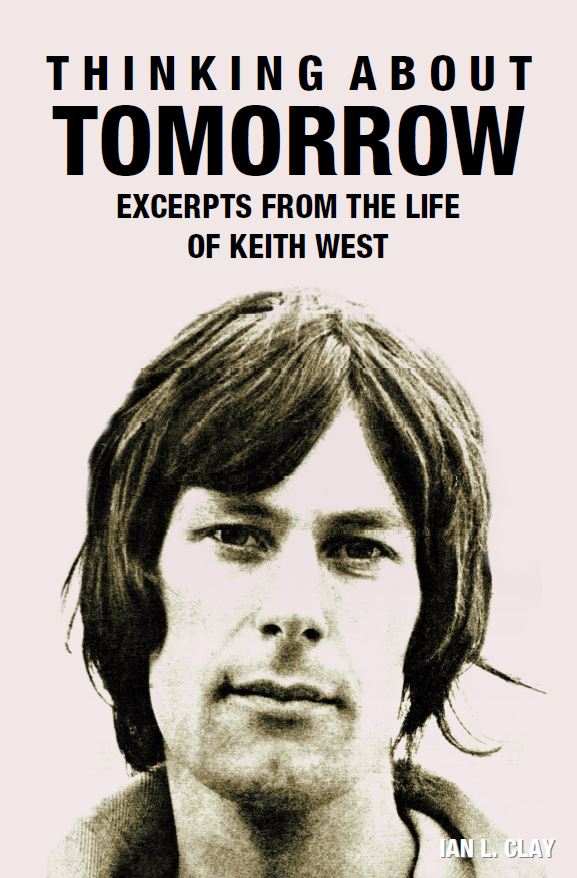“What I take the influence back to, was Excerpt from a Teenage Opera, a record in the late 60s, by Keith West that was episodic. That was really the one that was the biggest influence, and then lots of people started doing it. I think it was just that one record that made you realise that it didn’t have to be the same tempo or the same key all the way through, you could cut like a film.” Sir Paul McCartney
“I am often described as pretentious for attempting to write a composed song-cycle that tells a story. But, Rock Opera had already happened with Keith West’s Excerpt from a Teenage Opera.” Pete Townshend
* * * * *
An excerpt taken from the start of Chapter 12 of Thinking About Tomorrow: Excerpts From The Life of Keith West
The idea for the song that was to define Keith West’s professional career, in the mind of the general public at least, supposedly came from a dream which Mark Wirtz had in December 1966. ‘I saw this grocer named Jack, who was taken for granted by his village,’ said Wirtz in an interview in 2008. ‘He was only appreciated when he died – mostly by the children of the town who had taunted him when he was alive, but who loved him dearly and now missed him.’
As Keith points out, as gently as possible, ‘I wrote all the lyrics and, therefore, many elements of his inspired dream simply weren’t there at the beginning, especially the children’s section. But Mark, over time, and probably through telling the story repeatedly, has increasingly taken ownership of the entire narrative of the song.’
In reality, the involvement of both Keith and Mark in Excerpt from a Teenage Opera would be equally as important. Their combined strengths of lyrics and music, hip profile and classical training, a great singer and a killer hook, lots of studio time and a certain ‘throw it all at the wall’ approach to production, all combined to create a unique chapter in pop history.
As rock and roll ideas go, on the surface it was not the most promising concept. Still, Wirtz had got himself into a position where he was an in-house producer and arranger for EMI, and therefore had a certain latitude to pursue his own projects, without necessarily seeking the permission of his paymasters.
The antecedents of the song, and indeed Wirtz’s professional standing, go back to early January 1966 where Wirtz, a German musician with wide ambitions and interests from classical music to pop and rock, experimented with his vision by writing and producing A Touch Of Velvet – A Sting Of Brass under the name Mood Mosaic. His vision sounds simple, ‘To create movies on record’, but when explained, the concept becomes more nebulous; this lack of clarity would eventually cause problems for both Keith and Mark further down the line…
* * * * *
Learn more about this era-defining song, and the complete career of Keith West in:

